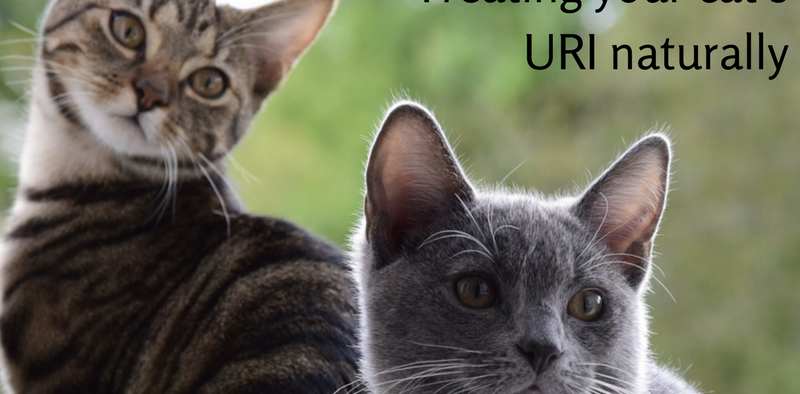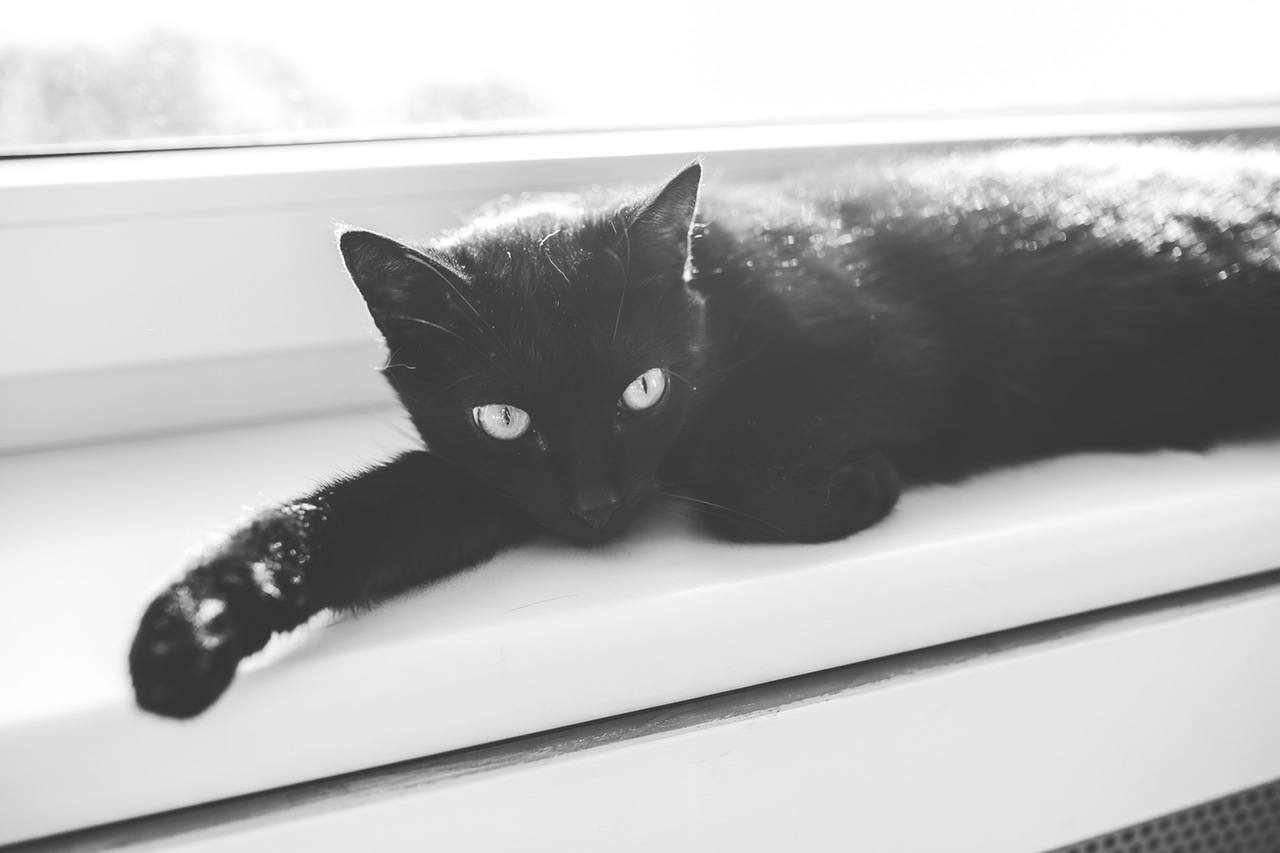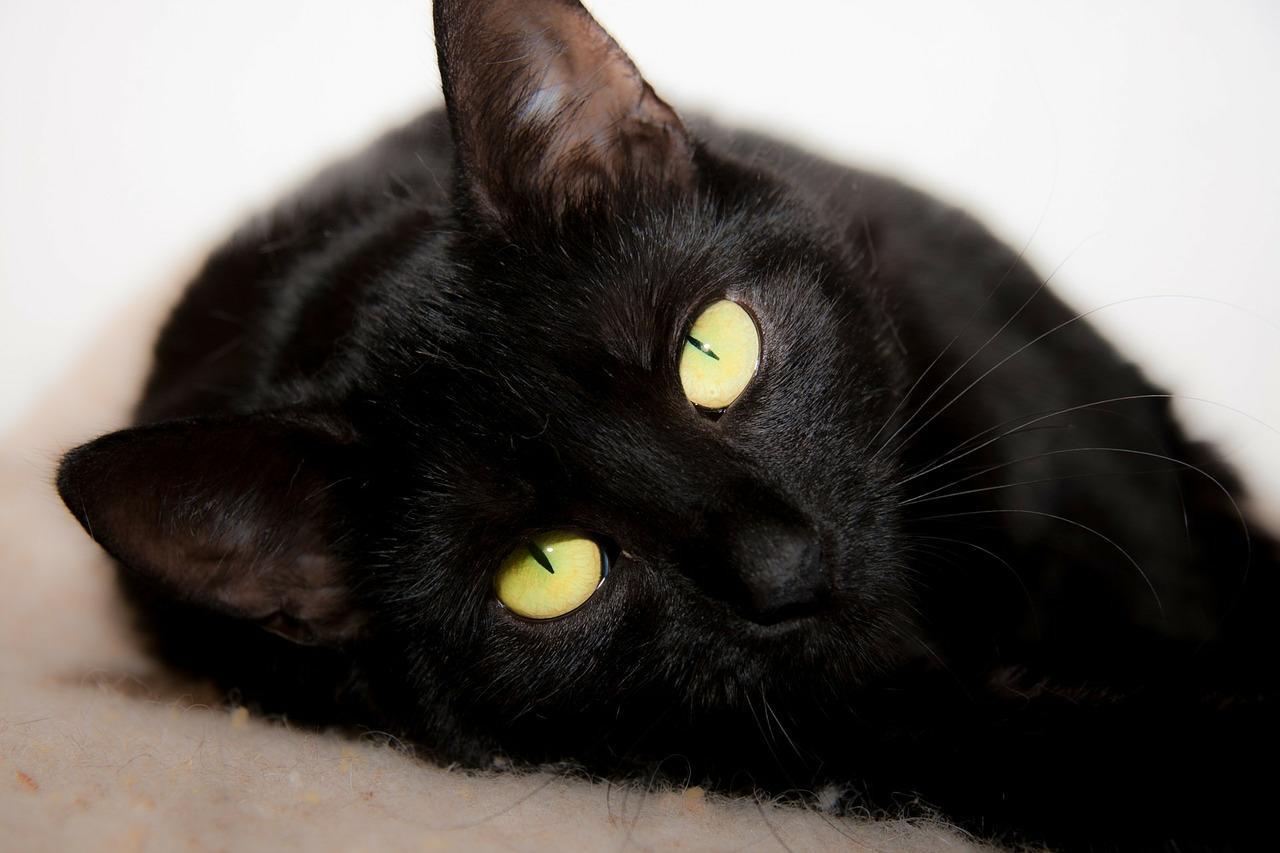Natural Ways to Treat Your Cat’s Upper Respiratory Infection
Share

Being a pet parent would be so much easier if they could tell us exactly what’s wrong, where it hurts and what we can do to make it better. (We could also finally figure out what the heck they’re up to when we’re not home.) We can’t fix everything at home, but there are several natural ways to treat your cat’s upper respiratory infection at home if it’s a minor condition.
If you suspect that your cat is suffering from an upper respiratory infection (URI), there’s good news and bad news…
The good news is that URIs are basically just the feline version of a cold – they go away with time and the cost of treatment isn’t high.
The bad news is that there’s no immediate cure and your pet may have to suffer through one to three weeks of being sick before they finally feel like themselves again. It’s also highly contagious, so if you have other animals in the home, you should plan on isolating your cat until they are free from symptoms.
More good news – there are plenty of ways to treat your cat’s URI from home. Below are some of the things you can do to put them on the fast track to recovery. These tips will also help you get through a long weekend if you can’t reach the veterinarian.
Rest assured your cat’s immune system is already working hard to bring them to health and conquer the virus.
This is not intended to replace veterinary advice. We are not veterinarians. Always speak to your veterinarian before trying natural remedies. If the symptoms worsen or persist longer than one week, make an appointment with your veterinarian. Pets are family and deserve medical care that is reflective of their significance in our lives.
Natural Symptoms and Treatments
Common symptoms of a URI in your cat may include:
- watery eyes
- sneezing
- coughing
- difficulty breathing
- loss of appetite
While some of these symptoms are less serious, some of them could warrant a trip to the vet if they go on too long or are seriously affecting your cat’s well-being beyond simple discomfort.
Before a visit to the vet, you should know that there are plenty of things you can do for each of these major symptoms…
Watery Eyes

One of the first signs your kitty is suffering from a URI is watery eyes. As a result, discharge usually collects in the corners of their eyes causing mild discomfort.
So what can you do to help? Start by moistening a clean cloth with a saline solution. Gently restrain your cat to avoid injury, then take the cloth and gently wipe away any residue you find around their eyes. You may need to do this several times a day.
Not only will this make it easier for them to open and close their eyes, but this will also give them a fresh and clean feeling when they don’t have the energy to clean themselves.
After doing this a few times, if your cat shows increased signs of discomfort, consider taking them to the vet for a prescription eye ointment.
Sneezing/Runny Nose

The next symptom after you deal with watery eye discharge is sneezing and a runny nose.
Your cat relies on his sense of smell to eat and hunt. When he’s got a URI, he may not want to eat. This can result in more serious problems down the road with severe weight loss, kidney conditions, and more.
Loss of Appetite or Refusal To Eat
It can be scary when your pet starts to lose their appetite.
Most pet owners can agree that under-eating is rarely a problem with their cats. But, when it comes to URIs, cats tend to lose their appetite because of the decreased ability to smell their food before consumption.
This is a natural instincts all cats have. Cats will often refuse to eat if they don’t feel well or if they can’t smell well. You may need to temporarily switch out the type of food you normally use to a more “stinky” food (like salmon, tuna, sardines, or other strong odor).
It’s important to keep your cat well-fed through their illness. This will be a major force in ensuring they recover as quickly as possible. You can help your cat return to their regular eating habits by providing them with warm food as it will give off a stronger smell. After heating up their food for a few days in a row, they should soon be ready to eat on their own again.
Warming Your Cat’s Food
Warming your cat’s food in the microwave for 3-5 seconds can help make the odor stronger as well. Be certain you don’t let the food get too warm. Test the food by touching the center of it and make sure it’s only lukewarm. Just a slight temperature adjustment can help improve it’s palatability.

Refusal To Drink
This is when things are becoming serious. If you can see that your cat is refusing water and you see he is becoming dehydrated, it’s time to call the vet. Cats need to drink a few ounces a day and if they are refusing for longer than 24 hours, they need to have become hydrated via sub-cu fluids.
Other things you’ll need to watch for includes monitoring your cat’s grooming. Since your cat may be spending more time sleeping than pursuing their usual prolonged bathing routine, a runny nose can often mean messy paws and a messy bed. Plan to spend some extra time grooming them and make sure you keep their bedding clean.
Bathing your cat is similar to how you handled your cat’s watery eyes: Place saline solution on a warm cloth and gently wipe their nose and paws.
URIs are extremely contagious, so practice very good hygiene after cleaning your cat or the room you’re keeping them in. Otherwise, you may transfer the illness to your other cats, pets, or humans.
Coughing/Difficulty Breathing

You’ll know the URI has worsened if your cat begins to cough or show other signs that may mean they’re having difficulty breathing. Depending on the severity of the condition, you may need to schedule an emergency appointment with your veterinarian. But if it’s mild congestion and a “raspy” sound, you can keep a close eye on your cat and treat at home.
Just as we treat congestion and coughs in humans, one of the first things your veterinarian will recommend is the use of steam.
Steam is great for loosening up the nasal passages and soothing tension that may cause headaches in humans. It’s also effective in treating croup in small children. Luckily, the same can be done for cats.
TIP: Run your shower as hot as you can. Once the steam has built up, you can go track down your cat and encourage him to come into the bathroom with you. Don't attempt to put your cat in the shower - just being in a room with steam is good.
Stay with him, because just having you with him will bring him comfort. Close the door and think of some things you can do to keep your cat occupied – treats, toys and even grooming them can help keep them relaxed and calm. This is also an excellent opportunity to clean their eyes and do a quick check for other symptoms.
Do this several times per day for at least five minutes at a time. If you and your cat can stand to be in thick steam for longer than five minutes, stay there. The longer they breathe in the steam, the more likely they are to benefit from it.
Another option is to bring a humidifier into your cat’s favorite room. These can help increase the humidity, which will help reduce coughing and inflammation of the lungs.
Recovery Time
It can take 1-3 weeks (and sometimes even longer) to shake an upper respiratory virus, so be very patient. If symptoms continue longer than that or grow worse, get your cat into the veterinarian immediately. He may need a breathing treatment, additional oxygen support, and antibiotics (or other prescription).
Every good pet owner knows that having a sick pet is no fun. Not only do you wish you could take the pain away but you’re also stressing about vet bills, ruined household items and whether or not everything will be okay when you come home each day.











It’s hard watching your pet suffer and knowing that the best medical advice is honestly to allow it to ride out. Having natural options to alleviate some of the symptoms can at least help during this time!